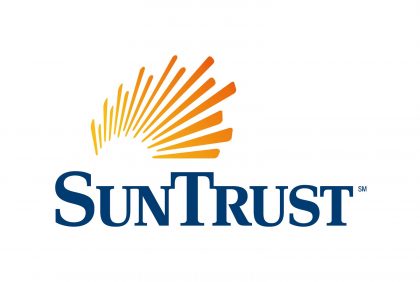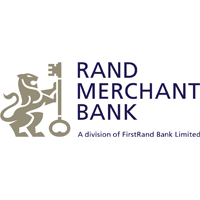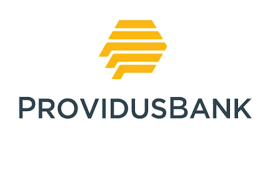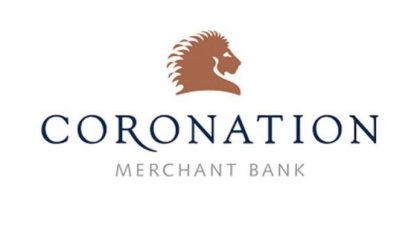Business
New Banks fight for survival

A clutch of new financial institutions are beginning to slowly appear on Nigeria’s banking scene as the once fragile economy wriggles out of a recession that held sway between the middle of 2015 and the second quarter of 2017. The renewed institutional confidence in the economy (which has grown more recently at 1.5 per cent) and the World Bank’s 2.5 per cent forecast GDP growth rate for the year has prompted investors to take a stronger longer term view of the country’s fortunes.
With more merchant banks taking up positions on Broad Street and a few other smaller commercial institutions sneaking in their shadows, the investment climate is becoming increasingly ripe for bigger outlays and more aggressive and innovative technology-driven competition. According to Chairman Nova Merchant Bank Mr. Phillips Oduoza, ‘the new investment climate brooks little room for sluggishness, we are going to increasingly see strategically placed direct foreign investments in critical areas of the economy that generate superior return on Investments. It is not about size it’s about expertise. In this world it is not necessarily the big that end up swallowing the small but the fast that take out the slow and awkward.’ Oduoza believes that going forward, ‘technical competence, creativity and sheer passion for excellence will separate the boys from the men’.
From the year 2000 to 2010 a freshly-minted concept of banking called universal banking held pride of place. According to analysts, the idea was that big banks with the ability to conduct business across all parts of the financial spectrum would do better than narrower specialist institutions. By 2010 it was evident that this perspective of banking was wrong, or some analyst and banking officials felt.
The CBN Reforms of Sanusi Lamido Sanusi as Governor the bank in 2010 abolished the framework and directed industry actors to read the Banks and Other Financial Institutions Act (BOFIA) which clearly states that insurance and stock broking were not related to banking and as such cannot be banking.
Said Sanusi, “Go and read BOFIA. BOFIA is very clear on this; that banking does not include insurance and stock broking. CBN cannot legislate on this because it does not have the authority to define insurance or stock broking as banking when BOFIA says it is not”. Though the period from 2010 to 2013 was no less turbulent for banks with a stifling macro-economic environment, new financial institutions could not be established. Some banks actually died or were merged and acquired by stronger cousins. However, new banks started emerging from 2013. Some of them in operations now include SunTrust Bank, Rand Merchant Bank Nigeria Limited, Nova Merchant Bank, Providus Bank and Coronation Merchant Bank Limited. The springing up of these banks, despite a tough operating environment signals room for more financial institutions to stake their claim in the sector. While three of the new financial services providers are merchant banks, two are commercial. Experts reckon that there are still gaps in Nigeria’s merchant banking landscape.
NEW MERCHANT BANKS
Against the backdrop of rising optimism over the state of the economy’s medium term health, financial market experts confidently predict an appreciable real growth of the real sector in 2018. Chairman of newly licensed Nova Merchant Bank, Phillips Oduoza has speculated on a robust rise in real sector economic activity in the course of the year, ‘as inflation topples a notch or two and the fiscal authorities scale down on the sale of fresh treasury instruments such as T-bills we should see faster private sector expansion’, he notes. Oduoza, erstwhile Managing Director, of one of Nigerian’s largest pan-continental commercial banks, UBA, in an exclusive interview with Business Hallmark expressed confidence in manufacturing and service sector growth in the year; this was on the eve of the official launching of his merchant bank in Lagos at the beginning of February.
The bank Chairman expressed the opinion that the time was ripe for a merchant banking revolution in the country to leverage top quality manpower, high end technology and cleverly crafted credit and investment strategies to bring about a buoyant expansion of Nigeria’s hitherto weak wholesale and investment banking markets.
Oduoza enthused that Nova would bring fresh investment financing to the Nigerian manufacturing sector which appears to have stagnated by growing at barely half the 3 per cent rate recorded by its agricultural sector counterpart.
‘’We believe that banking has sort of stagnated in the country for some time; therefore we want to introduce something new. We are driven by innovation and innovative services. So, we want to create very fresh and cost effective products and solutions for our customers’’ , Oduoza said.
Oduoza who explained that technology and digital banking was taking centre stage in the industry, argued that not many banks in Nigeria have been able to make that transition to new ways of rendering banking services.
‘’They are still tied to the old ways of doing things. So we want to move along the upper end of the digital technology curve’’, he affirmed.
Nova Merchant Bank reported a profit of N510.58m in its first full year of operations 2017.
Specifically, its results for its first eight months of operations, which ended December 31, 2017, showed that the bank recorded a gross earnings of N1.22bn, driven by prudence and efficiency in its financial activities. Total assets stood at N17.99bn, while the bank also reported a shareholders’ funds of N16.51bn.
With a marked and strategic approach towards cost-savings and maximization, the bank’s operating expenses stood at N743.39m in the period under review.
The Chairman of the Board of Directors, Mr. Phillips Oduoza, who expressed satisfaction at the first full year of performance, also commended the hard-work of the staff which culminated in the modest performance. He said, “We have assembled a team of professionals and our building state of the art technology to drive our innovative products and services in realization of our vision “To be Africa’s preferred financial solutions provider” and our mission to “create superior value in the markets we serve”
According to Oduoza, it is expected that the size of the bank’s balance sheet will provide a strong foundation to support the growth of its business and rapidly growing client base.
Its former Managing Director, Chinedu Ikwudinma, also noted that the performance was achieved by a commitment to the core values of the institution encapsulated by the acronym “UPLIFT” i.e. Uniqueness, Passion, Leadership, Integrity, Fairness and Teamwork.
He said, “NOVA is positioned to bring transformative advantage to our customers in keeping with our vision “To be Africa’s preferred financial solutions provider”. We are deploying the systems, services and personnel to make this happen and are excited about the future we envision for ourselves and our clients.
The Central Bank of Nigeria, CBN granted a regional banking license to Sun trust Bank Nigeria Limited in 2015. SunTrust Bank was formally presented to the public during the first quarter of 2016. Ever since, the bank has not looked back.
Its Chairman, Mr. Jubril Aku told Business Hallmark that Sun Trust Bank was a new entrant into a crowded banking space which made its choice of distribution through digital. He explained that the fintech bank would enter into alliances that would take it into the big share of the market.
”In five years time, we should begin to show even in percentage terms a share of the market. We will begin to appear as one of the choice given that the demography today appeal to fintech as a distribution platform”, he said.
The bank declared a profit after tax of N343million in the financial year ended 2016.
It also grew its customer deposits by 432 per cent to N4.2bn.
“Despite the 2016 recession that led to severe macroeconomic challenges, the bank recorded growth in customer deposits through its broad range of unique financial services and products to individuals, small businesses, corporation and the government, ‘’ The bank said in a statement.
Recently, the bank appointed Mr Ayo Babatunde as its new managing director/chief executive officer effective from August 2018.
A statement from the firm said Babatunde was previously the senior vice president/regional treasurer of Ecobank Nigeria.
“He replaces Mr Muhammad Jibrin who answered the call of his people to contest for the gubernatorial seat of his home state of Gombe in 2019,” it said.
Speaking on the changes, SunTrust Bank’s Chairman, Board of Directors, Jibril Aku said, “On behalf of the board and management of the bank, I want to thank Muhammad, our pioneer chief executive officer, for the solid foundation he has laid for the development of Nigeria’s first fintech bank. His passion for service will serve him well in his future aspiration to serve the people of his home state. We welcome Mr Babatunde, who has been a familiar person with an excellent track record.”
Jibrin added, “I have known him for quite some time as a professional colleague and I am very confident that he will take the bank to the next level and attain our aspiration of using fintech to deliver banking services.”
Rand Merchant Bank Nigeria Limited offers general corporate advisory, capital markets, leveraged financing, and debt restructuring services. The company was founded in 2013 and is based in Lagos, Nigeria. Rand Merchant Bank Nigeria Limited operates as a subsidiary of FirstRand Bank Limited.
In 2016, the international rating agency, Global Credit Ratings accorded national scale long-term and short-term ratings of A (NG) and A1 (NG) respectively to Rand Merchant Bank Nigeria Limited (“RMBNL”); with the outlook accorded as Stable.
Considered as one of the well capitalised, the bank has total shareholders’ funds of N21.2bn.
RMB Nigeria had in 2017 unveiled N80bn commercial paper programme which formed an integral part of the bank’s funding strategy as well as helped to diversify its short-term funding sources.
RMB Nigeria, a subsidiary of the FirstRand Group, is an African corporate and investment bank and part of one of the largest financial services groups in Africa which offers clients innovative advisory, capital markets, financing and principal investing solutions, has funded various infrastructure, real estate resources, acquisitions and development projects in over 35 African countries in the past decade.
Providus, a commercial bank with regional authorisation by the Central Bank of Nigeria (CBN), which emerged few years ago, is gradually growing its brand.
The Managing Director of Providus, Walter Akpani, said the bank was established with a vision to build an enduring and sustainable customer-focused financial institution.
Akpani promised that the bank would focus on service excellence, cost saving, speed, transparency and innovation.
According to him, the lender would leverage on technology to beat competition, saying the vision of the bank was to be the number one in service delivery.
He explained the bank would be a niche player and its nimble size was going to enhance cost saving.
“Our tailored financial services delivery include: business advisory, portfolio management, personalised relationship management, fast-tracked service delivery and self-service solutions,” he said.
Coronation Merchant Bank started as Associated Discount House Limited (ADHL) in 1993, owned by a consortium of financial institutions. It became a leading financial services institution and has survived different headwinds in the Nigerian economy. A new leadership took over ADHL in 2015 and launched its new brand name-Coronation Merchant Bank.
Coronation Merchant Bank, had listed three mutual funds on the NSE and allowed retailers to participate in the business.
The three listed funds were Coronation Money Market Fund, Coronation Fixed Income Fund and Coronation Balanced Fund which followed the success of the company’s initial public offerings for the mutual funds.
The Merchant Bank Limited had recorded 128 per cent growth in its profit before tax (PBT) which rose to N5.6 billion in 2016. The results revealed that its net-interest income increased by 86 per cent from N4.3 billion in 2015 to N8billion in 2016.
These banks have come on stream to compete for market share in an industry that is dominated by the big players such as G T Bank, Zenith Bank, UBA, FBN Holdings, Access Bank among others.
The banking industry is already plagued with numerous challenges emanating from weak economy and other macro-economic hiccups.
There is a consensus that the existing banks including the afore mentioned big players are already struggling to survive. Analysts therefore, reckon that whereas new entrants into the banking sector business can survive with good focus, adequate managerial skills and professionalism, there are still deep challenges ahead. However, they agree that new banks cannot wish away existing industry challenges which have stifled many to death.
These banks have come on stream to compete for market share in an industry that is dominated by the big players such as G T Bank, Zenith Bank, UBA, FBN Holdings, Access Bank among others.
The banking industry is already plagued with numerous challenges emanating from weak economy and other macro-economic hiccups.
There is a consensus that the existing banks including the afore mentioned big players are already struggling to survive. Analysts therefore, reckon that whereas new entrants into the banking sector business can survive with good focus, adequate managerial skills and professionalism, there are still deep challenges ahead. However, they agree that new banks cannot wish away existing industry challenges which have stifled many to death.
Weak capital base have more often than not been a major challenge for Nigerian Banks. Broad street analysts have blamed low capital base to weak economy and lack of productive activity in an economy that is obviously dependent on one commodity ‘crude oil’. How the new bank’s which though are not looking for N25billion as capital base and want to play small will be able to raise adequate capital is still a concern. The banks may want to concentrate and pursue niche market, but diversification may constrain their ambition and competitive edge.
More problematic is that the issues of non-performing loans in the banking industry have hardly been resolved. At the average of 15 per cent, that is 10 per cent above the regulatory benchmark, industry players are anxious that their underbelly may remain delicate and soft.
Some of the banks that posted weak results in the last financial year ended 2016 are still blaming their poor performance on huge provisions for toxic assets. Former, Minister of Finance, Chief Anthony Ani told Business Hallmark that those loans were incurred by the promoters of the banks and may never be recovered.
The new banks, market observers advise must make good corporate governance their watchword if they must sustain their brands and survive in business.
The banking industry, many observers say have not been very keen in applying utmost ethics and professionalism in Nigeria. Over the years the banks have been penalised financial malpractices which suggest lack of integrity and respect for the practitioners.
With the bench mark rate (MPR) at 14 per cent and lending rate at 25-30 per cent, it becomes more difficult for the borrower to repay loans. Businessmen have wondered the kind of business that can offer returns high enough to enable a borrower at such high lending rate to redeem his loan. Despite other reasons, industry commentators believe that the loan crisis between Innoson Motors and G T Bank which degenerated and caught the attention of market stakeholders may have been caused by high lending rate.
Nevertheless, bankers still reckon that there are huge gaps which can be filled by the highly innovative, dynamic and digital banking approach in Nigeria and Africa. ‘’There could be a fresh perspective to banking’’, some said.
‘’We believe that banking has sort of stagnated in Nigeria for some time; therefore we want to introduce something new. We are driven by innovation and innovative services. So, we want to create very fresh and cost effective products and solutions for our customers’’ , said Chairman of Nova Merchant Bank, Mr. Phillips Oduoza.
‘’ The first reason is that customers are to a large extent dissatisfied and, secondly, there is no access to finance to most of the people who need it. The only institutions that will succeed at the end of the day, particularly between now and five years and thereafter are those that will constantly innovate using technology to drive financial services’’, Mohammed Jibrin is the former MD/CEO of Sun Trust Bank said.
Commenting on the survival of New banks, Dr. Afolabi Olowokere of Financial Derivatives Company Ltd, said chances are more that the banks will survive if the lending rate remained higher than deposit rate. He argued that forex , fixed income and treasury bill transactions was capable of making the banks profitable. Olowokere explained however, that surviving as bank in a weak economy was a difficult venture.
According to him, the banks can do niche banking services, keep low operational costs, embrace technology and pursue innovations.
















